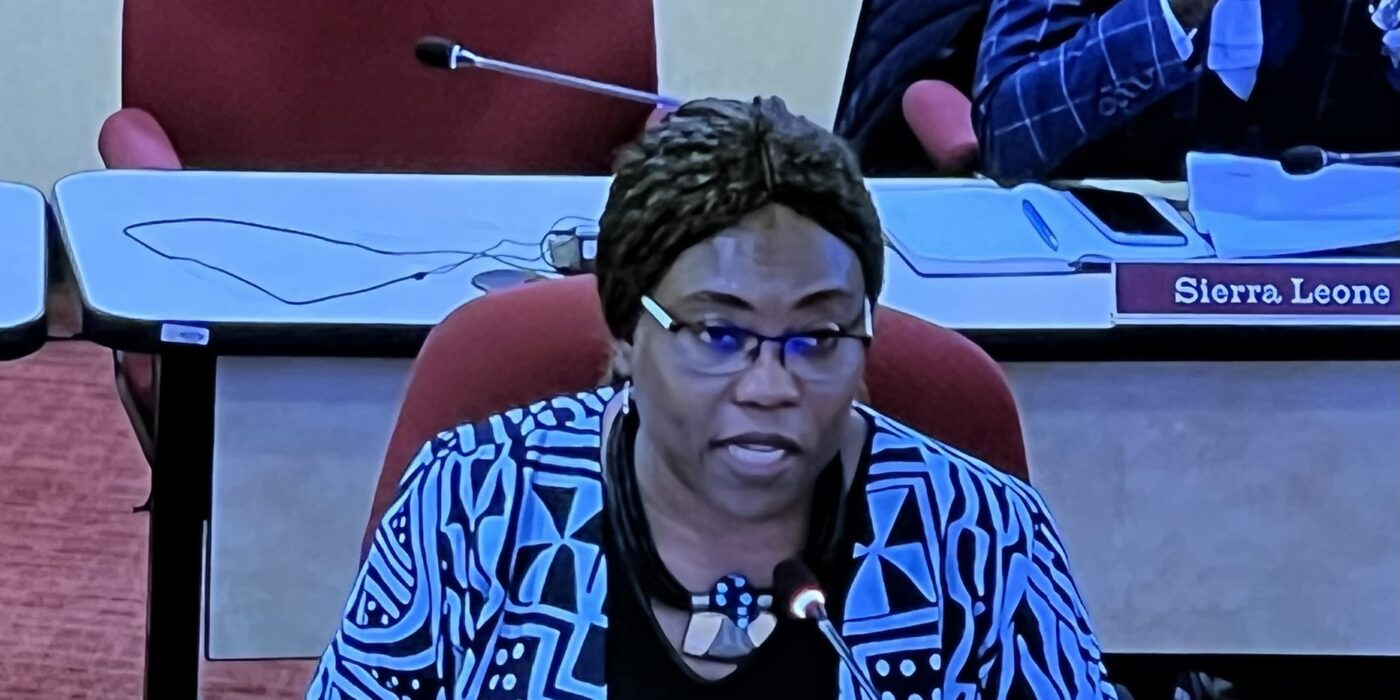By Helen Kezie-Nwoha
October 31st 2022, marks exactly 22 years since the adoption of United Nations (UN) Security Council Resolution 1325 on women, peace and security (WPS). Every year during the month of October the UN Security Council convenes an open debate to receive the report of the UN Secretary-General on WPS and listen to member states, UN entities, and different actors on the status of implementing the women, peace and security agenda. This year was no different as the meeting took place on October 21st 2022.
In this article, I share some of the gains of the WPS movement and areas that need more work as reflected in the 2022 UN Security Council open debate.
Protection of Women Human Rights Defenders: Speaker after speaker called on the UN and member states to ensure the protection of women human rights defenders (WHRDs), women peace activists, and women’s rights organizations (WROs). The recognition of the increasing attacks and the need for holistic responses is a significant gain for the WPS movement as many working in fragile and conflict settings are at risk or have been attacked. What was not mentioned however is the full accountability for such attacks. This is an area that must be further developed. There was recognition that the lives of women and girls are under threat from oppressive regimes but no mention of justice for WHRDs.
Prioritizing resources for WPS: Many speakers called for increased, predictable and flexible funding for the WPS agenda and particularly at the local levels. While some provided amounts committed to the WPS others did not specify their concrete commitment. It is therefore difficult to ascertain their level of commitment and important to determine how to monitor implementation for those who made commitments.
Profiling the voices of women in civil society: There was an acknowledgment that more women are speaking during the open session compared to ten years ago. However, there has been insufficient inclusion of women from different regions of the world and the most marginalized groups. Several speakers highlighted the need to include the voices of women in civil society in the Security Council debate and in the wider peace-building processes. This should include women living the realities of conflict in Africa whose voices are further silenced by shrinking civic space, government censorship or backlash.
Anti-racist and decolonized approaches to peacebuilding: the call for anti-racist and decolonized approaches to peacebuilding has become a point of reference for most western countries particularly those developing feminist foreign policies. While this is a welcome idea, there is a need for a clearly defined approach to how this will be achieved in the short, medium and long terms.
Increased conflict-related violence against women: speakers decried the increase in violence against women and more specifically conflict-related sexual violence as a result of activities of non-state actors in Ethiopia, Mali, Nigeria, and the Democratic Republic of Congo among others. The lack of access to education by girls and young women in Afghanistan and Niger was also mentioned including the long-term impact of these forms of violence on women and girls. The need for accountability for conflict-related sexual violence was prominent in the discussions.
Women’s involvement in peace building as mediators and negotiators: There was an acknowledgment that even though recent peace processes such as that of South Sudan and Sudan had notable involvement of women, current data indicate a low percentage of women in peace processes. This has been a challenge and would require all actors to take action and ensure women are included in ongoing peace processes.
Expressed commitment but limited actions: We listened to different countries showcase what they have achieved with regard to the WPS agenda, and some reported internal and external actions. What is common is the considerable support for the WPS agenda with regard to its implementation and resourcing. However, as someone who works on the ground, we have not felt the funding commitment being projected during the debate. I can deduce two possible reasons; a large proportion of these funds are given to states who do not see the need to support the work of WROs and in some cases see them as competitors. Secondly, some of these resources go to large international NGOs that require a significant amount for overhead costs and transfer smaller portions to local WROs.
Recommendations
- Member States must commit to protecting the rights of WHRDs and women peacebuilders whose work is fundamental to building peace and protecting the rights of people in fragile settings.
- The Security Council must strengthen its coordination with civil society organizations and women’s rights organizations working on WPS from both the global north and the south to ensure diverse voices inform global policy decision-making and discourse.
- Members states should adopt a human rights approach in the implementation of the WPS agenda. A human rights approach would involve the elimination of all forms of discrimination and structural inequality against women, adopt intersectionality principles, protect the rights of women to participate in decision-making and prevention of violence against women, uphold the human rights of women, and address the sources of inequality.
- All actors including those countries that have signed the Women, Peace, and Humanitarian Compact must fulfill their promise and commitment to financially support the implementation of the WPS agenda.
- Stop securitization of peacebuilding: countries supporting peace processes, particularly members of the Security Council should lead by example by reducing military spending and adopting dialogue as an approach to peacebuilding.



